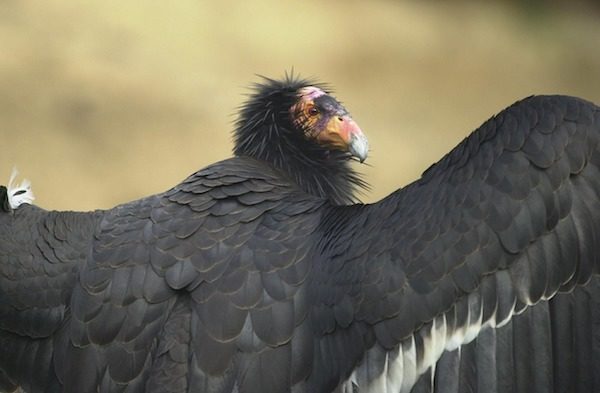Condor shooting under investigation in California
 Reward offered for information
Reward offered for information
–The U.S. Fish and Wildlife Service is investigating the shooting of an endangered California condor found on a remote private property in Kern County in July 2018.
The condor was found shot and missing several tail feathers on private property on Hudson Ranch Road, approximately five miles southeast of the Bitter Creek National Wildlife Refuge. The Service’s Wildlife Forensics Laboratory conducted a necropsy and determined the cause of death to be trauma from a gunshot wound.
Anyone with information regarding the shooting of this condor is asked to contact the Service’s Office of Law Enforcement in Sacramento, California at (916) 569-8476. Callers with information may remain anonymous. The service is offering a reward up to $5,000 for information leading to the conviction of the person or persons responsible for the shooting of this condor.
California condors were listed as endangered under the Endangered Species Act in 1967. In the 1980s, condor numbers reached a low of only 23 individuals worldwide. Intensive recovery and reintroduction efforts over the past three decades have brought the California condor population up to approximately 400 individuals.
California condors are protected by the Endangered Species Act and the Migratory Bird Treaty Act. Taking, shooting, injuring, or killing a condor are violations of these acts. The maximum penalty for a criminal violation of the Endangered Species Act is one year in jail and a $100,000 fine per individual (or $200,000 per organization). The Migratory Bird Treaty Act carries maximum penalties ranging from six months to one year in jail and fines up to $250,000 per individual, depending on whether an individual is convicted of a misdemeanor or a felony.
The U.S. Fish and Wildlife Service works with others to conserve, protect, and enhance fish, wildlife, plants, and their habitats for the continuing benefit of the American people. For more information about our work and the people who make it happen, visit https://www.fws.gov/cno/.


 Reward offered for information
Reward offered for information


















